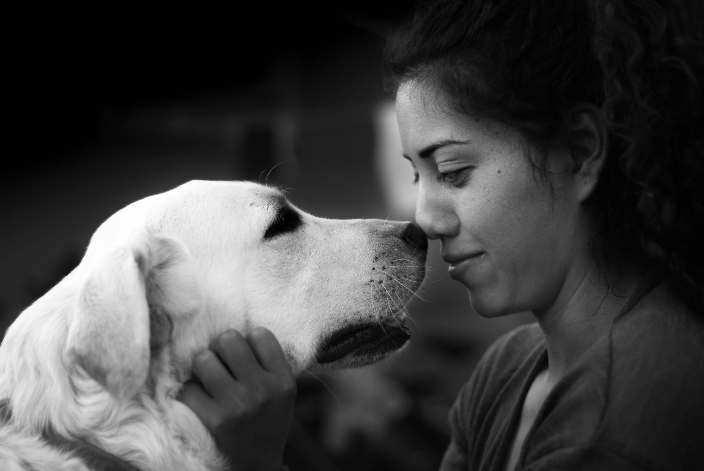Losing a pet is a profoundly emotional experience, often as intense as losing a family member. Pets provide unconditional love, companionship, and comfort, and their absence can leave a significant void. Despite this, pet grief is frequently overlooked, leaving many owners struggling without proper support. Pet grief counseling certification equips professionals with the tools and understanding needed to guide individuals through these difficult emotions. This specialized training focuses on the unique aspects of grieving for an animal companion and prepares counselors to provide compassionate, informed support. Recognizing the emotional impact of pet loss is the first step toward offering meaningful assistance. Certified counselors are trained to create safe spaces where clients feel heard, validated, and supported during their mourning process.
Pet grief counseling certification is a professional credential that focuses on equipping counselors to handle the emotional complexities of pet loss. These programs differ from general grief counseling because they specifically address the bond between humans and their pets. Certification courses cover topics such as the psychological stages of grief, strategies for coping with sudden or prolonged loss, and cultural differences in mourning pets. Participants gain practical tools to help clients honor their pets through memorials, rituals, or guided reflection exercises. Organizations offering these certifications provide structured curricula, ensuring that participants are well-prepared to meet client needs. Completing such a program demonstrates a commitment to ethical and compassionate care, increasing trust with clients. This credential is increasingly recognized by pet care professionals and wellness communities, reflecting the growing awareness of pet grief as a legitimate emotional challenge.
Earning a pet grief counseling certification provides counselors with vital skills that extend beyond basic emotional support. Certified professionals develop advanced communication techniques, including active listening and empathetic responses tailored to grieving pet owners. They learn how to identify signs of complicated grief and when to refer clients to mental health specialists. Training also includes understanding the emotional significance of rituals, memorials, and coping strategies for diverse pet loss scenarios. Counselors gain insight into the psychology of grief unique to pets, including guilt, self-blame, and feelings of isolation. This expertise allows them to guide clients through personalized grief journeys. By mastering these skills, certified counselors create a safe environment where pet owners can process their loss without judgment or minimization.
Career opportunities for those with pet grief counseling certification are diverse and rewarding. Many counselors establish private practices, offering one-on-one support sessions for individuals struggling with pet loss. Others collaborate with veterinary clinics, animal shelters, or pet care centers to provide grief support as part of a holistic care model. Online platforms, workshops, and support groups also allow certified counselors to reach clients beyond their immediate location. Some professionals expand their practice to include broader wellness and emotional support services for pet owners. By entering this niche field, counselors gain the ability to make a meaningful difference while building a sustainable career. Additionally, the growing recognition of pet grief ensures ongoing demand for qualified professionals in this specialized area.
Choosing the right certification program is a critical step in becoming an effective pet grief counselor. Factors to consider include program accreditation, course content, instructor expertise, and professional support. Some programs are offered entirely online, providing flexibility for busy professionals, while others include in-person training for hands-on experience. Program duration and cost vary, so it is essential to evaluate options based on personal goals and resources. Prospective counselors should also review alumni experiences and the success of previous graduates in applying the skills learned. A strong program will include mentorship, interactive exercises, and opportunities for real-world application. Investing time and effort into selecting the right certification ensures counselors are well-prepared to provide meaningful support to grieving pet owners.
Benefits of earning pet grief counseling certification extend beyond professional recognition. Certified counselors gain credibility, which helps build trust with clients seeking support during vulnerable times. The training equips professionals with specialized skills to address the emotional needs of grieving pet owners effectively. This certification also offers personal fulfillment by allowing counselors to make a positive impact in a niche yet growing area. Many counselors report increased confidence in their ability to navigate complex emotional situations after completing certification. Additionally, certification can open doors to new career opportunities and partnerships with veterinary clinics and pet care organizations. By providing expert guidance, certified counselors help clients find healing, closure, and comfort during one of life’s most difficult transitions.
Applying pet grief counseling certification in practical settings requires intentional planning and networking. Counselors can start by establishing a private practice or joining organizations that provide grief support to pet owners. Marketing services ethically through online platforms, social media, and community partnerships ensures visibility while maintaining professionalism. Networking with veterinarians, pet shelters, and pet care providers helps connect counselors with clients who may benefit from their expertise. Continuing education and professional development are critical for maintaining certification and staying updated with best practices. Certified counselors often participate in workshops, seminars, and conferences to enhance their knowledge. By applying the certification thoughtfully, counselors maximize their impact and build a reputable, client-focused practice.
While pet grief counseling is fulfilling, it also presents challenges that professionals must navigate carefully. Counselors need to maintain emotional boundaries to prevent burnout while working with clients experiencing intense grief. Some clients may exhibit prolonged or complicated mourning, requiring additional patience and guidance. Legal and ethical responsibilities, including confidentiality and proper documentation, are critical in professional practice. Understanding cultural differences in grieving practices is also important to provide sensitive and inclusive support. Certified counselors must continually assess their approach to ensure it meets client needs while preserving their well-being. Recognizing and preparing for these challenges strengthens a counselor’s effectiveness and resilience.
Skills and Knowledge Gained Through Certification
- Advanced empathetic listening and communication
- Understanding psychological stages of pet grief
- Strategies for memorials, rituals, and closure exercises
- Identifying clients needing referral to mental health specialists
- Guidance on managing client emotions with sensitivity
- Maintaining professional boundaries and avoiding burnout
- Tailoring support for diverse cultural and emotional needs
Frequently Asked Questions (FAQ)
What qualifications do I need before starting a pet grief counseling certification?
Most programs require a background in counseling, mental health, or related fields. Some courses accept beginners but may provide foundational modules in psychology and grief support.
How long does it take to become certified?
Program duration varies, typically ranging from a few weeks for short courses to several months for comprehensive certification.
Can I offer counseling online after certification?
Yes, many certified counselors provide virtual sessions through teletherapy platforms, making services accessible to clients worldwide.
Are there ongoing requirements to maintain certification?
Some organizations require continuing education credits, attendance at workshops, or periodic renewals to maintain active certification status.
How can I build trust with clients grieving a pet?
Establish empathy, active listening, and confidentiality. Providing personalized guidance and validating client emotions fosters trust and creates a safe support environment.
Takeaway
Pet grief counseling certification empowers professionals to provide compassionate, specialized support to individuals navigating the loss of a beloved companion. By gaining targeted knowledge, practical skills, and professional credibility, counselors can make a profound difference in clients’ emotional recovery. The certification opens diverse career opportunities while addressing a growing need for expert support in pet bereavement. With dedication, continuous learning, and ethical practice, certified counselors help pet owners find solace, healing, and meaningful closure. This unique field offers both professional fulfillment and the opportunity to positively impact lives during moments of profound loss.











